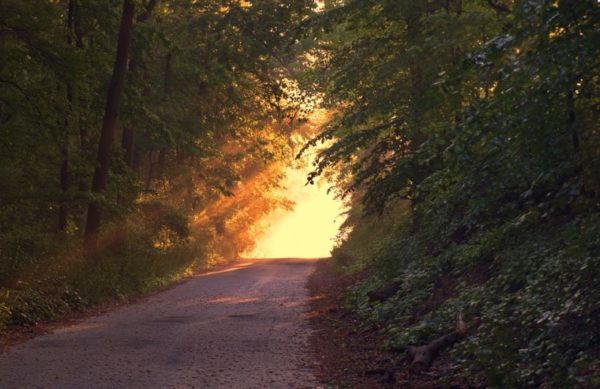
As a sci-fi author, I have written a number of times before about our responsibility to forecast the future, both to warn the world about what might be coming, and to share my hopes for what we might become.
In these last few years, I have written four separate columns about the idea of hope and writing. In these fraught several weeks before the US election, I find myself hoping against hope for change, and then fearing the worst. Every day, there’s a new poll that reinforces that hope, and a new piece of news that dashes it.
Biden’s up in Texas. A new poll has a third of Hispanics supporting Trump. The pandemic’s numbers are at their highest levels yet in United States. A vaccine on the horizon. Conservatives are about to realize their dream – a 6-3 majority on the US Supreme Court. Marriage equality comes to Northern Ireland.
The world is in churn right now, and it’s exhausting.
I can throw my hands up in the air, or I can light a candle and preach hope.
I am choosing hope.
This is something I’ve struggled with in my writing career as well. I’ve destroyed the entire Earth on at least three occasions, and yet, there’s almost always a thread of hope even in my darkest prognostications.
Case in point – I wrote three short stories this month, a new record for me. As regular readers of this column know, I’m waiting for Pitch Wars to complete to see if I end up getting a mentor for my latest work in progress, “A Plague of Earth and Fire.”
Two of the three short stories take place in the near future, on an Earth devastated by climate change. While there is darkness all around, both of these tales are visions of hope and change.
The third short one is my first time travel story, looking backward to the time when I was most hopeful about the future, in my late teens and early twenties in the 1980s.
The Soviet Union crashed. I moved to California and got my first job in publishing. And my whole life was ahead of me. There were dark signs too – the advent of HIV/AIDS, the Reagan years, and the spectre of Nuclear annihilation. But back then, everything seemed fixable, if we just tried hard enough.
Writing this short story, it was wonderful to remember that time in my life, and to speculate how are the things we have learned now and the changes have been made in the last 10 years might be put in service to help queer folks who were teenagers back then.
Back in 2020, we’re in trouble, consumed by multiple pandemics – viral, racial, and conspiratorial. But I refuse to believe things are beyond repair.
I’m not a politician. I’m not a teacher or a firefighter or a community organizer.
I am a writer. So I take up my pen and paper (or my keyboard anyhow) and I spin tales of hope and possibility for a future that may yet come to pass.
Writers, who’s with me?
